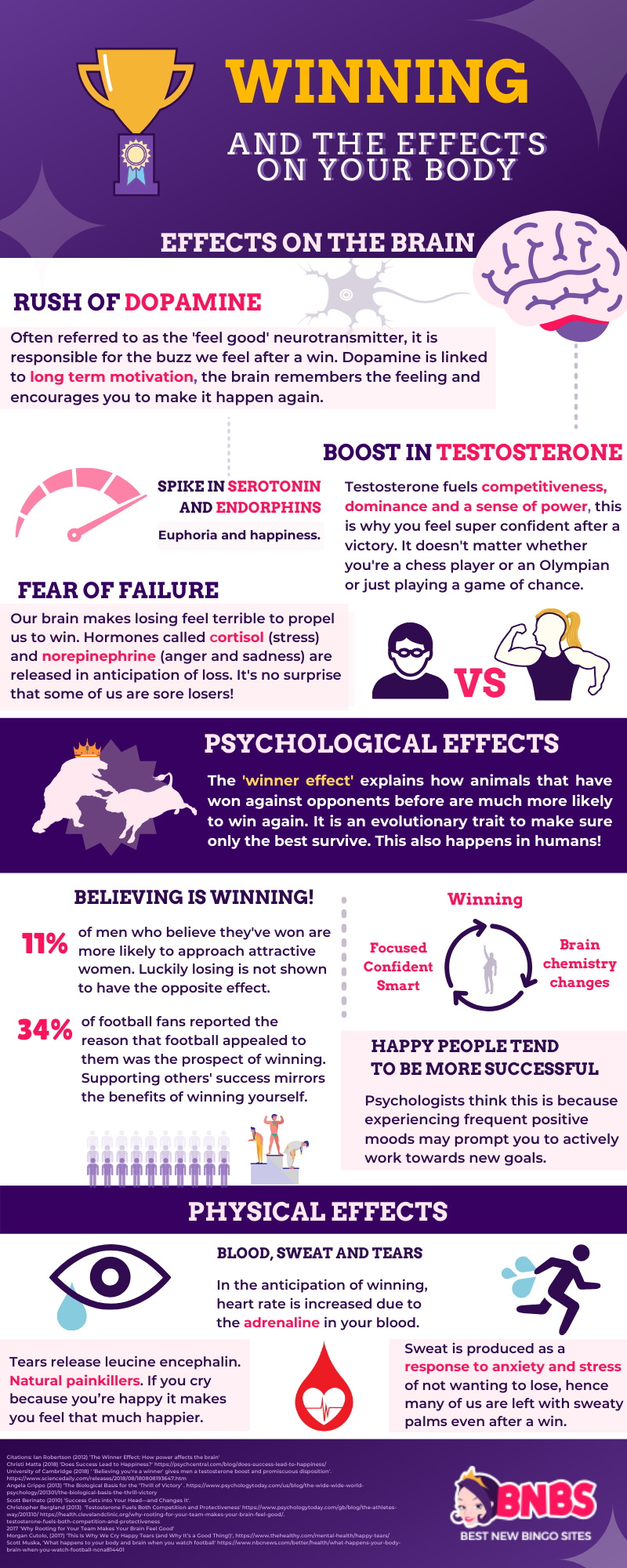Does Winning Actually Boost Testosterone Levels?
We all know that winning at something makes us feel great, whether that be at our favourite video game, a team sport, or finally landing that promotion at work. That sense of euphoria and confidence that comes along with success is often attributed to a boost in testosterone levels, but is that actually what makes us feel so great? Does winning actually boost our testosterone levels?
The Winner Effect
“The winner effect” is a term used primarily in biology. It describes how an animal that has won a series of fights against a weaker opponent has a much higher likelihood to go on to defeat stronger competitors. This is thought by researchers to be because the animal’s victories against the weaker competitor function to boost the animal’s testosterone levels, as well as dopamine levels, giving them the confidence and drive they need to take on future combats. This boost in hormones does not just stay with the animal in the short-term, but the long-term also. In fact, animals will not only grow more confident from their successes, but they will also become smarter and more focused too. This is in part because the animal’s brain retains key information on how they came to achieve their success.
The winner effect is a phenomenon that is also understood to apply to humans too. There have been studies conducted which found that tennis players who won their first set had a 60% chance of winning the second set. This explains why some people seem to be constantly on a roll of successes and wins.
If you want to understand more about the impact that winning has on our brains and bodies, then Best New Bingo Sites have created a really useful infographic, which nicely illustrates the range of different effects.

Can Self-Belief Also Boost Testosterone Levels?
A lot of people regard giving yourself a pep talk as a pretty cringey thing to do. However, what a lot of people don’t realise is that there is actually strong scientific evidence to suggest that pepping yourself up before a pivotal moment may well improve your overall performance. Research carried out by the University of Cambridge found that men who believed in themselves as capable of winning experienced the same spike in testosterone levels as they would if they had actually won. The research team measured the hormone levels, and self-confidence, of the 38 young male participants, before and after they took part in a rowing machine based competition. However, little did the participants know, they competitions in the study were in fact rigged, and a random participant was declared winner. While previous studies have shown that winning can affect male hormones, it was not known whether this was down to the efforts it takes to win or the belief that one is victorious. The study revealed that believing they had won gave the participants the same boost in testosterone as if they had actually won the competition. As such, it seems as if a person is able to convince themself that they will, or have already, won at something, it is more likely that that will in fact become reality.
This spike in testosterone that they experienced allowed them greater confidence and motivation, in turn increasing their chances of attaining success against another competitor. Whilst winning boosts testosterone levels, testosterone levels also increase your chances of success.
The Role Of Dopamine In Winning
Dopamine plays an equally important roll to testosterone in the cycle of winning. It is often referred to as the “feel good hormone”, or the “happy hormone”, and it is linked to long-term motivation. Dopamine largely performs its role before we attain our successes. The real job of dopamine is to encourage and motivate us to work to achieve something positive, as well as to avoid something potentially bad. We feel motivated when our dopamine levels spike because we anticipate that something of high importance is about to occur.
Once we achieve success, the rush of dopamine we get, combined with that rush of testosterone, motivates us to win again in the future, so our brains can experience that same addictive hormone cocktail.
So, yes, winning does actually boost testosterone levels. This boost in testosterone, combined with dopamine, plays a crucial role in us as humans becoming more confident, more motivated, smarter and ultimately more capable. People who are willing to work hard generally have highly testosterone and dopamine levels than those who tend to stick to lazy habits. There is definitely a strong link between achieving success and boosted testosterone levels, and vice versa.

